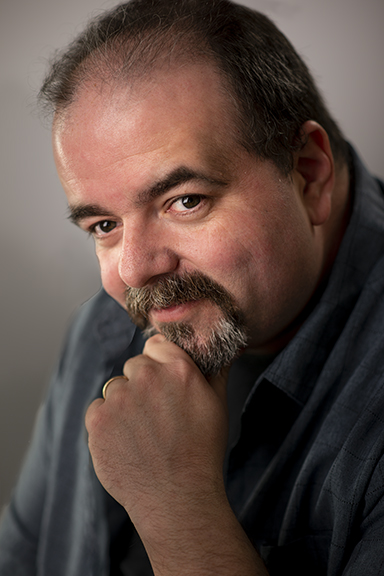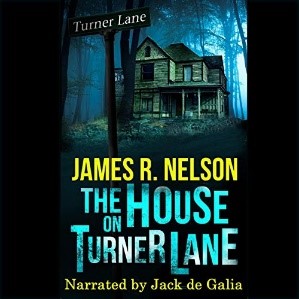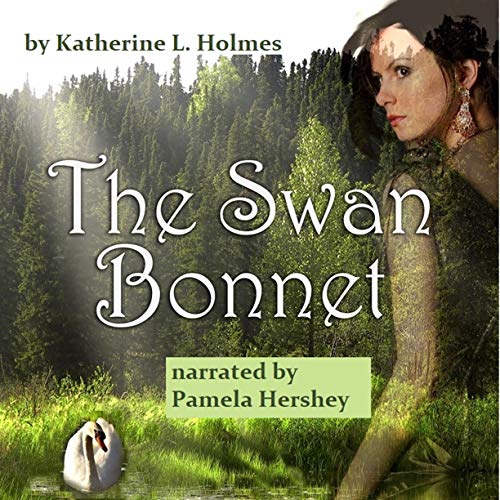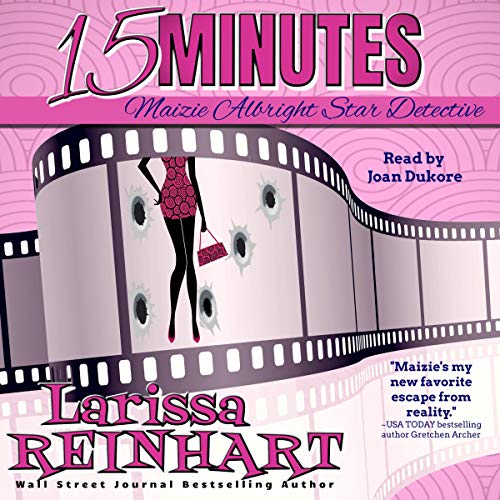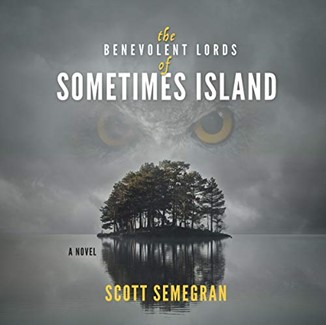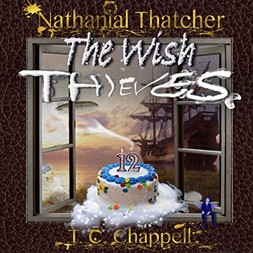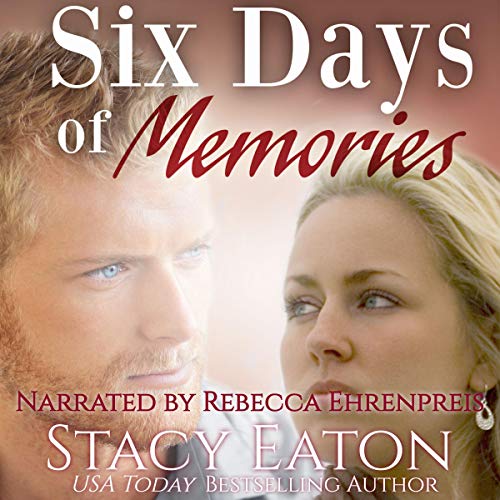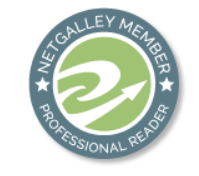Interview with Rox Burkey
Thank you for visiting Readers, Listeners and Fans. I normally do book reviews here, but I like to interject some variety to keep you guessing.
I have known Derek for quite a while. He is the voice for award-winning Techno-Thrillers of The Enigma Series, written by Breakfield and Burkey. After partnering with him for 10 books, I thought it would be fun for you to learn more about him. These days, his skills are in high demand across all sorts of genres. He hasn’t missed a beat at making the books come to life using his voice talent.
Derek, thanks for agreeing to this discussion. Starting early might give readers insight to journey to this point. Let’s begin.
The Younger Years
Were you that lad around the campfire who could tell stories in a way that made everyone lean forward, then jump out of the skins?
Actually no, I was more of the quiet, keep to themselves kind of kid. Most of my free time was spent in front of the TV or with a pencil in my hand drawing portraits, or large-scale drawings. I was picked on a lot, so I found it easier to just hide in my art than to draw attention to myself. That changed in the later years of high school.
Did you end up keeping any of those drawings? More importantly, what have you done with them?
I believe I only kept a couple of them. I’d sold some of my early work to our school principal so I could buy flowers for a girl I liked back in 8th or 9th grade. The few I kept are in one of my portfolios in the basement.
Were you involved in theatre during your high school and college years?
In high school, yes. I was in band since elementary school, but I’d first joined choir to see more of a girl I was interested in. Then I ended up finding out I was a good bass/baritone singer. I then joined Show Choir for the same reasons and discovered I could actually dance if choreographed. This gave me the courage to try out for my first musical, “Mame”.
I was still that shy/formerly bullied kid, so getting up in front of 30-50 kids to sing my audition for the lead romantic role was frightening. I didn’t get the part but was cast in three minor non-speaking roles. I found out that the people who I had believed thought they were better than me, turned out to be good kids and became friends with me after I’d auditioned.
The following year I auditioned and landed the lead comedic role of Jimmy Smith in “No, No, Nanette” and found my true passion on the stage. I still remember the rolling laughter from act 1, scene 2 and how amazing it felt to have the whole audience laughing at my performance. My Senior year, I doubled on two-years of Performing Arts, performed again in that year’s musical, and performed in the Senior play.
I went to college for Graphic Design, as that was what my parents and I had worked to get me in, so I didn’t have classes in acting. I didn’t think I could make a living as an actor, even though I’d never felt more alive than on the stage. I still did some dramatic readings here and there. The moment I remember, was the final test for a class on Shakespeare’s tragedies. The professor was the head of that school, and only taught one class a year. I didn’t know that but had gotten in somehow.
The final test was at his house for a big end of quarter party and required us to either solo, or as a group, prepare a scene from one of Shakespeare’s plays, and perform it however we wanted to. I chose Julius Caesar’s Act 1, Scene 2 performing both roles of Brutus and Cassius alone. The class chuckled when I’d change characters, but shortly after they stopped and were silent. Once I finished, I got my first standing ovation. It was both exciting, and freaky. I say freaky because everyone’s attitudes changed towards me. No one had paid me any attention during class that quarter, but after that performance they all acted like they’d known me.
Were you involved in debate or other activities that helped shaped your journey to this point?
The only debate-based activity I was in was Model United Nations. My school didn’t have too many other debate types of opportunities, but I wasn’t the type to take them at the time if we did. I still have trouble with speaking in front of people with the house lights on.
When did you decide you wanted to pursue this as a successful career?
It wasn’t until about eight or nine years ago, 2011 or 2012. I’d heard about voice acting but hadn’t realized it could be a career. You just don’t put two and two together that someone was getting paid to say, “In a world…” or that’s voicing my favorite animated/video game characters. I figured you had to be in California or NYC to do it. I drove from Rochester, NY to Toronto Canada to meet with a pro voice actor who gave two-hour, in the booth sessions to see if a person had a chance. I learned what voice acting was and found out that I could make a career of it, though it would be difficult for commercial VO having come from a stage acting background.
Early Adult Years
Do you like reading stories to your children and playing all the parts?
Yes. Though my kids have many times asked me to not do the characters for the evil villains. I have to remind them that daddy’s a voice actor and has to commit to the performance, though I do dial it back a bit. It’s gotten to the point where I can only narrate the stories, and I have to do the characters. I do love it and love how excited they get when they connect with one of the characters, then how I have to cut them off after five or six chapters, so they’ll go to sleep.
What were some of your early jobs that helped lay the foundation for your pursuit of voice acting?
Nothing that laid the foundation, but more helped in projects that I voiced or narrated. My early career has spanned from pushing shopping carts, working in Fisherman’s Wharf at Wegmans, to my degree in Graphic Design, and years in retail. All of those varied careers have helped me know the jargon, and to speak confidently when I need to speak or narrate a character or topic near to those. The Enigma Series is heavy on programming and technology and having my night job be an Interactive Project Manager that manages a team of software developers made the dialogue natural and easy.
As such, I don’t think any of the careers guided or proved foundational to voice acting, but they’ve certainly helped after becoming one.
What steps did you take before deciding that narration would be ideal for you?
As mentioned previously, I drove to Canada to meet with a professional voice actor, who was willing to put interested people into a sound booth for two hours and provide sample scripts from a bunch of different voiceover industries to experience. Afterward, he gave an evaluation on how he felt I did in the booth. He said I was one of the few stage actors he heard that could make the transition into voice acting. It wouldn’t be easy (and it wasn’t), but with enough training I could.
I started taking improv classes, as those really help you to make acting choices in the moment and commit to the scene. That is indispensable in voice acting. There’ve been times a director has asked me during a session to try a different emotion or style, and I needed to make a solid choice right then and there.
Then I started searching online and found my first voice acting coach for commercial VO, Terry Daniels. For a year he would provide scripts to me that he would give direction on for homework. Then I would record them and send to him to review. Then in our next session we’d go over how I did on the homework and practice those areas I needed to fix. Overall, it was a solid coaching that prepped me for commercial work.
I’d also worked with a coach on character development, and eLearning voiceover as well. What made me decide to go into narration, was that my night job changed four years ago into a day job. I lost all of my commercial voiceover clients because I wasn’t available during the day anymore. I didn’t want to lose my VO business, so I’d messaged the Global Voice Acting Academy, and asked what voiceover industries I could do if I could only work in the evenings and nights? They said eLearning and audiobooks.
When did you first decide that your voice would open doors for you as a voice actor?
I’ve always loved acting. Even though I was pushed down the Graphic Design path, I always regretted not pursuing acting as a career from the start. I didn’t even think I could sing until I joined choir, and act until I did my first musical in high school. But it wasn’t until about six or seven years ago, when I saw the Geico commercial with Don LaFontaine that it clicked, “There’s a person paid to do that.” When I paid attention to the end credits in animated shows, I looked up the names and saw how long their careers had been.
That drive to Canada to get an evaluation with a pro voice actor showed my commitment, and willingness to push myself, both to him and myself. Standing in the recording studio’s sound booth/room and hearing him coaching me with the cans on and standing in front of the microphone, it just felt… right. When he said that I was “honestly the first stage actor he critiqued that he really felt could actually have a shot at a career in commercial VO”, I knew that I had to give it a shot. I also knew it wasn’t lip service as he couldn’t teach me while living in a different country, and he was really open about it when we talked at the pub after the two-hours in the booth.
When I gave audiobooks a second shot, after being lied to and scammed into a horrible contract in my first year as a voice actor, I found that audiobook narration was just like being on stage, except there’s no one actually with you. It’s pure acting, not trying to sell something, but being every character and performing a story for the listener. I love audiobook narration now, more than ever and am glad I’m in this career.
Do you have particular genres that you prefer working on?
I really enjoy LitRPG (Literary Role-Playing Game), as I play quite a bit of D&D (Dungeons and Dragons). RPGs and narrating a story that takes place in a world with game mechanics as a part of the character’s lives is very interesting and fun. I also enjoy narrating thrillers, as those have tense moments that require serious performances to convey the right mood to the listener. Non-fiction is a great over-arching genre, as every book is an opportunity to learn something new, and to teach the listener as well.
How much preparation do you do in advance of actually recording anything?
I first read the book before narrating. That sounds like a “well duh” sounding thing, but there are people who say they don’t, and you can hear it in the performance. I need to know how the story will progress, at what points key events happen that require a change in performance style, how many characters am I going to be performing, what those characters look like and what country they’re from, among any other key points that will impact my performance. I may need to research correct pronunciations of words that I don’t know (or think I know but turns out I’ve been saying them wrong the whole time). It’s especially critical in non-fiction as there are often people’s names, specific industry terms, acronyms, charts, etc. and I need to know how to perform those. Once I have all of the information prepped, then I can begin narration.
Do you review your own work or simply wait for the verification by the posting team, like ACX?
That depends. ACX only looks for the audio files to match their recording specs, they don’t care about how accurate the narration is to the source manuscript. I don’t proof my own work anymore. I did for the first couple of books to get a feel for how many mistakes I make, and what trips me up the most.
For indie books, I now send my first round narration to a proofer for them to review my narration against the manuscript and point out any sounds, mis-pronounced, missing, or extra/changed words, and also for times when I make two words into a contraction that shouldn’t be. They send me a spreadsheet back with the errors and I then go through and fix those pickups. After that, I then send it to a producer who cleans the audio and preps it into MP3s for upload.
Publishers such as Tantor, Podium, Gildan, etc. handle the proofing and production process themselves, so I’m only responsible for the narration. That’s great as I only have to prep and perform. However, the production schedules are usually far shorter, so you need to make sure you’re as accurate as possible before sending it in otherwise they may decide you’re too much work to work with.
In other situations, I try to self-proof before sending the raw audio to either the proofer or the publisher. That way it minimizes the number of pickups I need to do later, but I will never only rely on my own proofing. We’re too used to our own vocal mannerisms, and can easily miss the things I mentioned previously, so it’s absolutely necessary to have a different person proof your work.
Thoughts/Advice To Those Considering This Profession
What do you feel is the difference between narrating and voice acting?
First, audiobook narration really is voice acting, it’s just there’s this odd separation from what most classify as “voice acting”. I’m not reading the script; I’m giving the characters a life and tone that embodies how they’re described by the text the author chooses. Emotional changes, tone and pitch shifts, they’re all intentional and based on the manuscript’s direction. If that isn’t acting with the voice, I don’t know what is.
The second difference is endurance. I liken commercial VO (voiceover) to Audiobook Narration like this: Commercial VO (for the most part) is like running the 100m Dash, it’s an intense sprint because you’re putting so much into such a short period of time. eLearning is like running the 800m sprint. You gotta pace yourself, and it’s a longer stretch to maintain the proper tone of voice and interest, but most sessions learning modules don’t go longer than one hour.
Audiobook narration is like running the Boston Marathon twice, in the middle of Summer. For every hour of finished narration, it took three to five hours to produce it. So, a 10 finished hour book could take anywhere from 30 – 50 hours (depending on the narrator’s speed) to produce. Plus, there can be many different characters, of different genders, of different ages… and you need to make sure each character is distinct from the others so that the listener isn’t confused. It is voice acting, but a vastly different beast.
Is there a text you can take do this?
There isn’t really a test per se, but audiobook narrator Karen Commins has a nice little self-assessment quiz. There’s a lot that goes into audiobook narration that people don’t think about at all, and her site does a great job of putting it all out there.
For commercial VO, the best method is to find a coach that can/will evaluate you to determine what skill level you’re at, and what you’ll face in the industry based on where you’re at at that time. They’ll provide samples scripts and give you a feel for what it’s like to be in the booth. Based on your performance they’ll either say it won’t be a right fit for you, or that yes you have a shot. Real, legitimate coaches will not sugar coat it but be blunt and honest about where you’re at, and what you face. Don’t take it personally, but as an honest assessment of what you need to do to be competitive in this industry.
Ultimately, there are far too many people without experience or training, who’ve been lied to by articles saying voiceover is the easiest way to make a living, and/or shady trainers guaranteeing a career with only one class and a demo at the end. That’s absolutely wrong and unrealistic in any industry, let alone the entertainment industry. It took me about five years before I turned a profit, and that’s even with training. You’re a small business owner, regardless of the genre of VO, and you need to treat it like that.
What sort of equipment and location does one need to professional pursue narration/voice acting?
I have to start by saying that you first need acting lessons. Sorry, but that’s the first thing all of us have done and you will absolutely need to have a chance of success. You need to be able to cold read a script and make acting decisions without any prep. I’ve lost count of the number of times I’ve gone into a studio and was handed the script three to five minutes before the recording session started. Audiobook narration is different as you have the manuscript beforehand to prep, but again you need to be able to make each character distinct from the others. You will need to make the emotions believable so that they don’t come across as “hammy”. Only acting lessons and coaching can give you that fidelity of control.
After classes/training, you need a properly treated recording area/room, so that you don’t have echo, appliances running, people/TVs running in the background (these are seriously things some non-professionals have left into their recordings on Audible), etc. Many have a closet that they use that’s separated and can be treated to remove those things I mentioned. If the room/space isn’t correctly acoustically treated, it won’t sound good at all and the listener will not be kind in their reviews. No microphone can fix bad acting or a horrible room.
Eventually, you’ll need an XLR microphone (don’t use a USB microphone except to practice with, the amp is inside the mic and can introduce a buzz into the sound from that, though some have gotten good they just don’t stand up in quality to the XLRs) and an audio interface to connect the XLR microphone via USB to the computer.
Obviously you need a decent computer that’s either very quiet or can be outside of the recording area and have the cable run into the recording area for the monitor and microphone, as you’ll need to worry about fan noise (remember the treated room part) so that can be tricky depending on how things are setup. Finally, you need a software DAW (Digital Audio Workstation), which is the recording/editing/production software to actually record the audio and edit it. I personally use Studio One Artist now, as it has native Punch & Roll which is essential for audiobook narration.
Is there a mentoring program for this profession and how does one get connected?
Absolutely! Coaching, coaching, coaching. Just like any other career field, you absolutely need to have training to do it right. There are voiceover coaches for any genre of the industry you may be interested in. And yes, each industry has its’ own style and process you need to know before trying to get into it. I’ve worked with seven coaches in the six years I’ve done VO, and three years alone were for audiobooks. The best way to connect is to search online for voice actors who are working in the genre you want to start in and reach out to them as outlined on their website. You can ask other voice actors for their opinions as well on who’s worth it. Don’t take any class that promises you a full-time career and a demo after one or two coaching sessions, they’re scamming you.
Also, never try to produce your own demo. If you want an commercial VO agent, they won’t even look at you if it isn’t professionally produced, and a professional demo producer won’t work with you if you don’t have coaching or training to prove you can handle the work the demo can bring. The demo is the first and last way of finding out how good you are by clients.
Audiobooks are different, in that we don’t have a demo but instead use three to five-minute samples from each genre we want to be considered being cast for. Those are self-produced, but they’re representative of your narration style in that genre, and of the final quality of audio you can supply.
Three solid resources for connecting with coaches are the Global Voice Acting Academy (GVAA), the World Voices Organization (WoVO), and Edge Studios as they have lists of coaches in all of the different voiceover industries. I hesitate to recommend Facebook VO groups as there are many that are not professional. They won’t give you good advice, but will just tell you what you want to hear.
I personally worked with the following coaches:
Terry Daniel (commercial), Crispin Freeman (character development, animation), Sean Pratt (audiobook narration and business), Tom Dheere (eLearning, corporate narration), Carol Monda (audiobook narration), PJ Ochlan (Audiobook narration, accents), Steven Jay Cohen (audiobook narration)
What book has been the biggest challenge so far in your career?
My first audiobook, The Enigma Rising was the biggest challenge for me from an overall narration perspective. It had over 30 characters, with 10+ accents, in both male and female, and that was the first book I decided to get into audiobook narration on. It was serious challenge that pushed me and forced me to learn a lot of the processes that I’ve refined in the last three years of audiobook narration. It was an amazing project that I enjoyed, and it really helped me to discover my love for audiobook narration.
Would you recommend this to your children as a career choice?
Only if they honestly want to pursue it, because it’s far more brutal than people realize. I’d never force them into acting, and just like in Hollywood it will break you if you aren’t prepared.
They’d need to be able to read a manuscript and make acting decisions on the fly (three or more takes many times), have a thick skin to take rejection without internalizing it (I still struggle with that), ignore (or try to find any workable feedback in) negative reviews, and be able up to handle four to five hour sessions in the booth with a director or be able to self-manage a project that could take up to 50 hours to produce (depending on the VO industry they want to pursue). I mentioned, they’d need to take acting lessons and coaching sessions, learn proper mic technique, and how to be professional when working with directors, engineers, and other actors on projects.
I’ve been straight-up with them about this, but they also know that I wouldn’t stop doing this for anything in the world. And, God willing, I hope to be a voice actor until the day I die. If they said, “Dad, I want to be a voice actor” and they know all that they’re getting into, I’ll endorse them whole-heartedly and get them into coaching, because voice acting is an industry that’s as much of a family to each other as it is an amazing (yet difficult) career to have.
Derek, I want to thank you for the chance to interview you. This has been fascinating, and I’ve learned a great deal. I am certain anyone who is considering voice acting will find this information valuable. You have a great attitude, are easy to work with, and a solid professional.
Do you have a website where folks can find out what you are doing?
Yep. It’s at www.derekshoalesvoice.com. I’m horrible on updating the announcement page, but I’m trying. Social media is really where I try to keep up. Links to that are on there as well.
Lastly, how can folks reach out to you to learn more?
They can shoot me an email at dshoales@derekshoalesvoice.com. I may not respond quickly as I’m in the booth quite a bit, but I’ll certainly do my best. I’m not a coach so I won’t take students on. I can certainly point people in the right direction.
Follow Derek on Twitter – LinkedIn – Facebook – Email Listen to all his awesome award winning performances.

